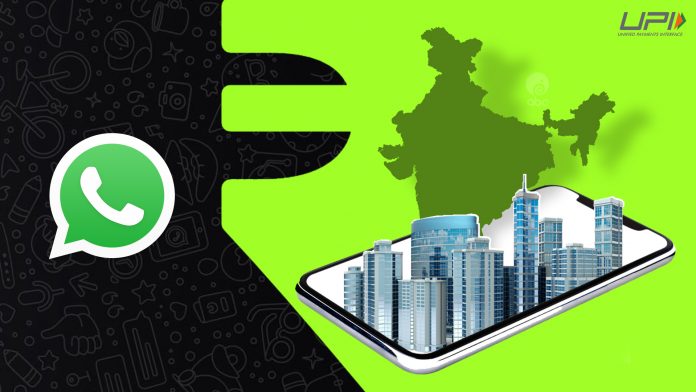Months after its November 2020 launch, WhatsApp Pay remains marginal in the nation’s dominant UPI payment system. The Facebook-owned mobile platform remains confident, however, seeking to add other financial services. As Central regulators (and banks) try to fine-tune an overloaded mobile payments network, new market opportunities open up.
Slow WhatsApp Pay Rollout Revealed
Indian retail payment markets are questioning WhatsApp’s strategy in following through with its integrated payment service. Recent reports reveal that several months after its official launch the Facebook subsidiary remains practically irrelevant in the Union’s mobile payments landscape. Given the platform’s huge popularity (and despite initial limitations imposed by regulators), WhatsApp Pay’s current performance remains somewhat puzzling.
The popularity of UPI is owed to its practical daily usefulness to pay for groceries, buy lottery tickets online in India or share a bill with friends. Yet, WhatsApp Pay (which also runs on the same system) is not accepted for mobile gaming or legal online lotteries.
Mattias Bergehed, CEO of ENV Media, explained recently in a delivery at SEOCon Indonesia 2021 that mobile entertainment consumers are mostly searching for local card games such as Teen Patti or Andar Bahar queries . Questions about provider coverage, possible fees, digital taxation and traceability are among the top lookups for real-money mobile online entertainment sites like Purewin.com.
Early forecasts on WhatsApp Pay successful adoption have hardly proven right, as it currently accounts for only 0.02% of all UPI transactions (and 0.01% in value). In comparison, the leading mobile payment provider, PhonePe has a dominant share of almost 47% of all customer initiated transactions under UPI, followed by Google Pay and, far behind, by Paytm.
Mobile Payments Market Remains Dynamic, Possible Shifts Lie Ahead
As a matter of fact, the National Payments Corporation of India (NPCI) has already imposed a series of current and upcoming limitations on third party payment providers. The transaction volume cap was announced in the fall and came into effect at the start of 2021. It requires mobile payment channels to stay below 30% of the nation’s total transaction count for a given trimester.
Intended to curb the dominant position of some of the leaders, it still gives them two years to comply with the new rules. However, new retail payment providers – as is the case of WhatsApp Pay – have to conform right away.
In a technically unrelated attempt to decongest the systems of its more than 220 participating banks, UPI recently went further and banned all gaming payments under Rs 50. Affecting a number of token-based and pay-as-you-play casual and fantasy games, this move was met with discontent by some online companies.
In a potentially positive twist, however, these series of regulations are likely to stimulate India’s fintech sector to look for new solutions and alternatives for small-value and recurring payments.
WhatsApp Financial Services to Grow
The Facebook subsidiary is in no way intent on backing down. WhatsApp plans to make up for its underperforming financial features by expanding into personalized health insurance and is already running pilot trials for individual pension, education or agricultural financing products. Early plans were confirmed by Abhijit Bose, Head of WhatsApp India.
The fact that its direct payment services are slow to take off is partly due to initial user limits imposed, again, by the NPCI. Out of its 400 million-strong consumer base WhatsApp was required to launch payment features for only 20 million. Even if and when these restrictions are eased up, the company will need to enable the function to millions of merchants to enable peer payments.
WhatsApp for Business has already been fine tuned for family businesses such as kirana shops. Roughly 15 million dedicated users have access to features like catalogues and store fronts that enable them to reach out to consumers. Over the past two years the company has made significant steps in that direction, with financial and retail aspects yet to be perfected.




